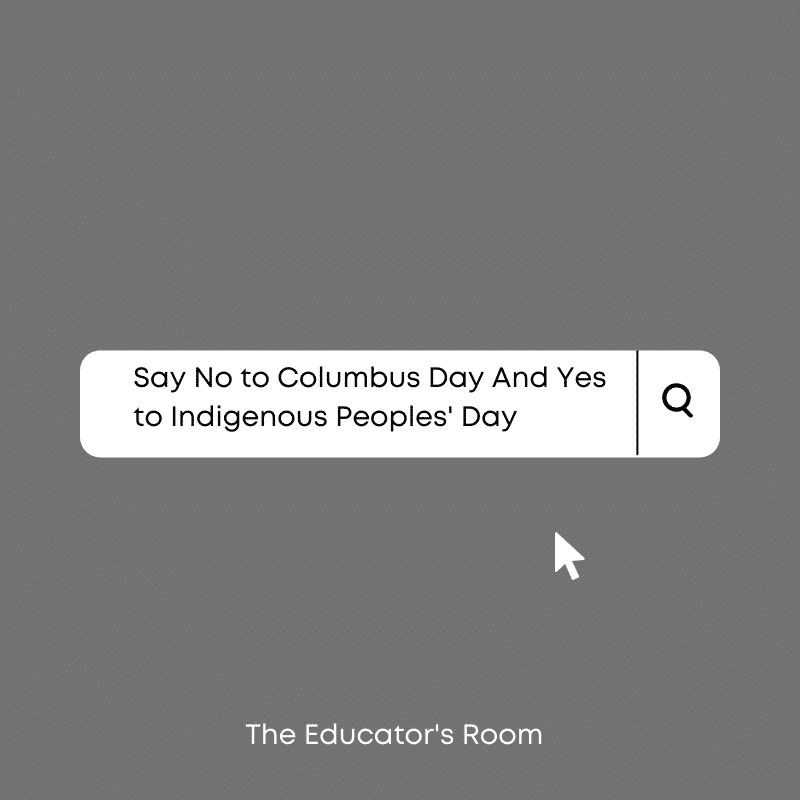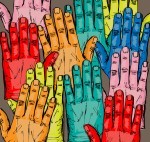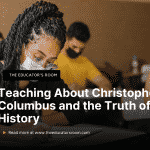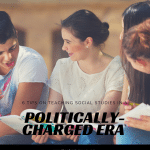October 14th was Columbus Day this year. I remember that as an elementary student in the late 80s/ early 90s, we would do little projects about Columbus and his ships, the Nina, the Pinta, and the Santa Maria. My parents have a drawing my younger sister did in 2nd grade of Columbus showing the new world he discovered to two characters she created. It’s a really well-done drawing (she was eight then) and a cute story. Of course, as children, we didn’t know a lot about Columbus. Unfortunately (or fortunately,) as I grew older, I found out more about Mr. Columbus; let’s be honest, it leaves a bad taste in my mouth.
Introduction of Columbus Day
I was first introduced to Columbus (the villain) in high school. My World History professor didn’t really go into detail about him. Another thought was that there were more important people to discuss. When I became a Social Studies teacher, my first class was World History. Many of the teachers at the school I taught for had adopted the policy of debating Columbus as a hero or villain. It helped the kids develop their critical thinking skills while allowing us teachers not to have to defend or vilify someone.
Now, it is hard for me not to bash the man. Let’s face it. He was not a good guy, but my role as a teacher was facilitating discovery and allowing students to form their own opinions. Sometimes, it is hard to do that and not inject our own views. I know that the tide is changing. A teacher I discussed this with said his students still debate it. Some teach him as a straight-up villain. Others choose to ignore him and focus on other historical figures like Amerigo Vespucci.
Facilitating A Conversation About Columbus
I understand any view of teaching Columbus in school. But the reality is we shouldn’t ignore him. His arrival in the Americas is important. This event started a tidal wave of change, exploration, conquest, and colonial domination that would change the world. Students must understand that. Debating teaches students the important skill of perspective: defending the actions of someone they consider a villain stretches students’ critical thinking.
I think the days of coloring pictures of ships, singing little songs, and doing other fun projects on Columbus Day are gone – as well as they should be. Should there be a holiday? No. Let it just be a part of Fall Break. Should we ignore Columbus? Absolutely not. We have to teach the positive and negative parts of history no matter what.






